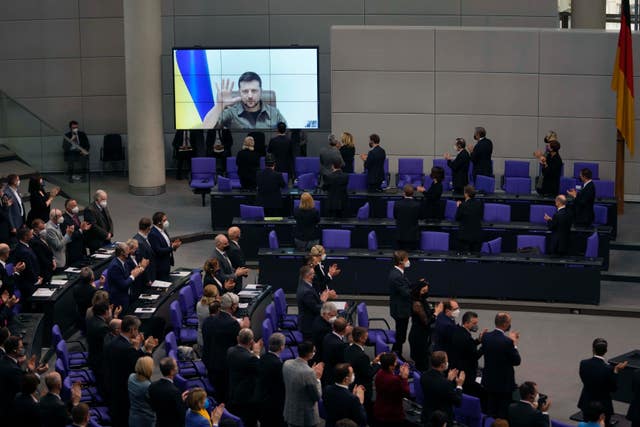Germany is hosting a conference to gather support for Ukraine’s recovery from the destruction wreaked by Russia’s war, sending a new signal of solidarity with Kyiv at the start of a week of intense diplomacy.
The two-day Ukraine Recovery Conference in Berlin, which begins on Tuesday, comes before the Group of Seven summit of Ukraine’s leading Western allies in Italy and a global peace summit in Switzerland this coming weekend.
Ukrainian President Volodymyr Zelensky, who last week attended events marking the 80th anniversary of the D-Day landings in France, is expected at the gathering, which the German hosts say will bring together 2,000 people from politics, business and other areas.
“People want to keep on living in their country, and to do so they need electricity, water and a roof over their heads.”
The task of supporting Ukraine’s recovery in the short and long term “is too big to be tackled by governments alone — which is why we are expressly inviting companies, civil society and municipalities to the conference,” Ms Schulze added.
Among other immediate problems Ukraine faces, sustained Russian attacks on its power grid in recent weeks have forced leaders in Kyiv to institute nationwide rolling blackouts.
In London last year, Ukraine’s allies pledged several billion dollars in non-military aid to rebuild the country’s infrastructure, fight corruption and help pave Kyiv’s road to membership in the European Union.
That focus on reforms remains central this year.

On Monday, the head of the State Agency for Restoration of Ukraine, Mustafa Nayyem, announced his resignation on Facebook.
He cited “systemic obstacles that prevent me from exercising my powers effectively” and accused the government of bogging his agency down in red tape.
Ukraine hasn’t had a minister dedicated to reconstruction since Oleksandr Kubrakov was dismissed in May.
Mr Nayyem complained that Ukraine’s prime minister barred him from attending the Berlin conference.
Mr Zelensky, making his third visit to Berlin since Russia’s full-scale invasion started on February 24, 2022, is also expected to make a speech to the German parliament, or Bundestag.
